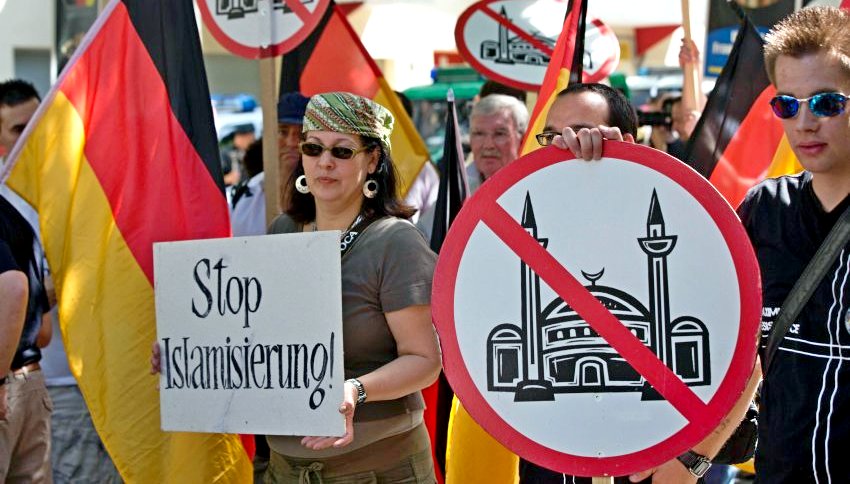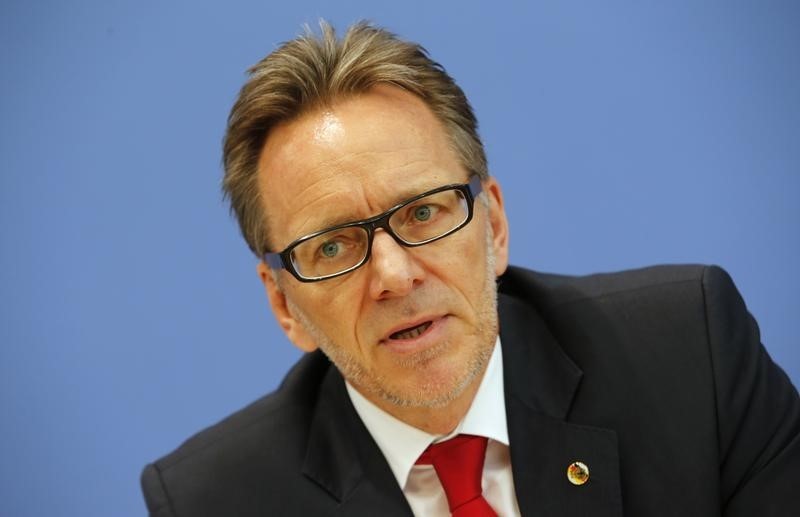The right-wing extremism and anti-Muslim sentiment in Germany are getting more and more dangerous. On Monday night, there was an attack on a mosque in Dresden, built by the Turkish-Islamic Union for Religious Affairs (DİTİB), which is considered close to the Turkish ruling Justice and Development Party. An explosive device was set off in front of the entrance of the mosque by unknown attackers. The imam, his wife and two sons were in the mosque at the time of the blast. No one was injured during the attack.
Twenty minutes later, the Dresden police received another call in connection with another explosion: this time the International Congress Centre was attacked, which will hold celebrations on the occasion of the anniversary of German unification on October 3, attended by the German President Joachim Gauck and Chancellor Angela Merkel. The explosion occurred on the center's terrace, where, according to the newspaper Bild, the President Joachim Gauck's speech was originally scheduled.

German president, a man of open liberal views, causes the German nationalists' persistent antipathy. He was booed by neo-Nazis this June in Zebnice, a small Saxon village on the border with the Czech Republic. According to the German police, the right-wing radicals are responsible for two recent incidents in Dresden. The attacked mosque, as well as other Muslim religious objects in Dresden have been taken under heavy police protection.
Meanwhile, the number of attacks on mosques in Germany is growing from year to year. If in 2010, according to the German police, 23 attacks were committed, then in 2014 the number of attacks has reached 64 and in 2015 - 74. 'Attacks' refers to a variety of events, among which the most 'harmless' is a desecration of mosques by feces and waste from slaughterhouses were pigs are slaughtered. Actions of not only a symbolic and psychological nature, but also representing a direct threat to the visitors of mosques – for example, attempts to set fire – are more dangerous. In the second quarter of 2016, 14 attacks on mosques were commuted, 9 of which were committed by right-wing radicals, and the rest by foreigners, in particular, members of the Kurdistan Workers' Party, which is considered terrorist in the EU.
The statistics of attacks on refugee camps is even more frightening. According to German law enforcement agencies, there have been 199 attacks in 2014, but in 2015 the number has reached 1031. In 2016, the police have information about 750 attacks on the refugee camps, 693 of which were committed by right-wing radicals.

President of the Federal Criminal Police Office of Germany, Holger Münch, said in an interview with Tagesspiegel, that there is a risk of forming new right-wing terrorist groups, similar to the National Socialist Underground, which members killed migrants throughout Germany from 1998 to 2011. Previously, the chairman of the Federal Office for the Protection of the Constitution, Hans-Georg Maassen, and the German Minister of Internal Affairs, Thomas de Maiziere, warned about the probability of a new wave of far-right terror. No less alarming trend, which was indicated by high German security forces is increasing approval of such actions by German citizens, not just marginals, but also representatives of the middle class.
All the German political forces, including the extreme-right party 'Alternative for Germany', strongly condemned the attacks committed in Dresden. These events have once again confirmed the image and already tarnished reputation of Saxony as a stronghold of the German ultra-nationalists.






